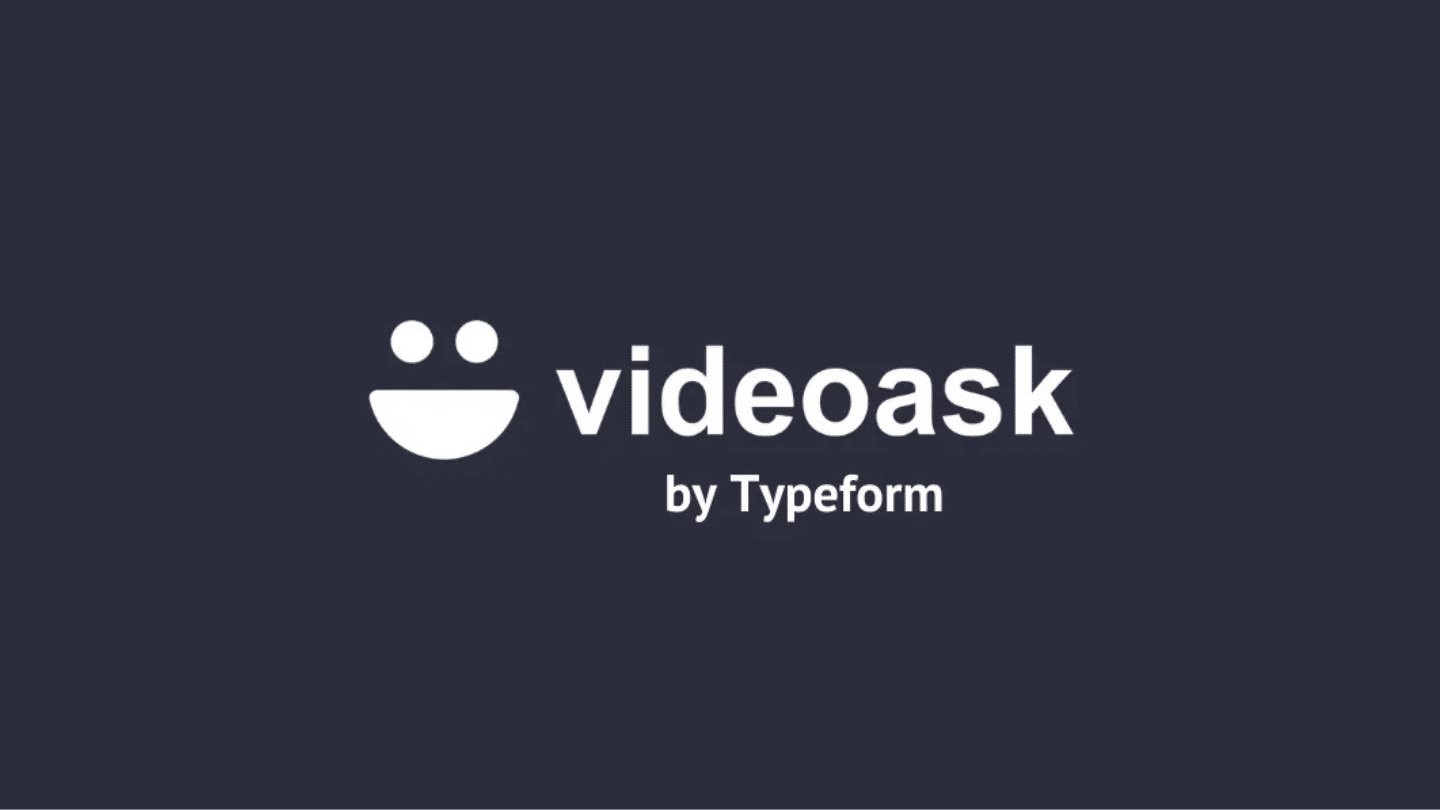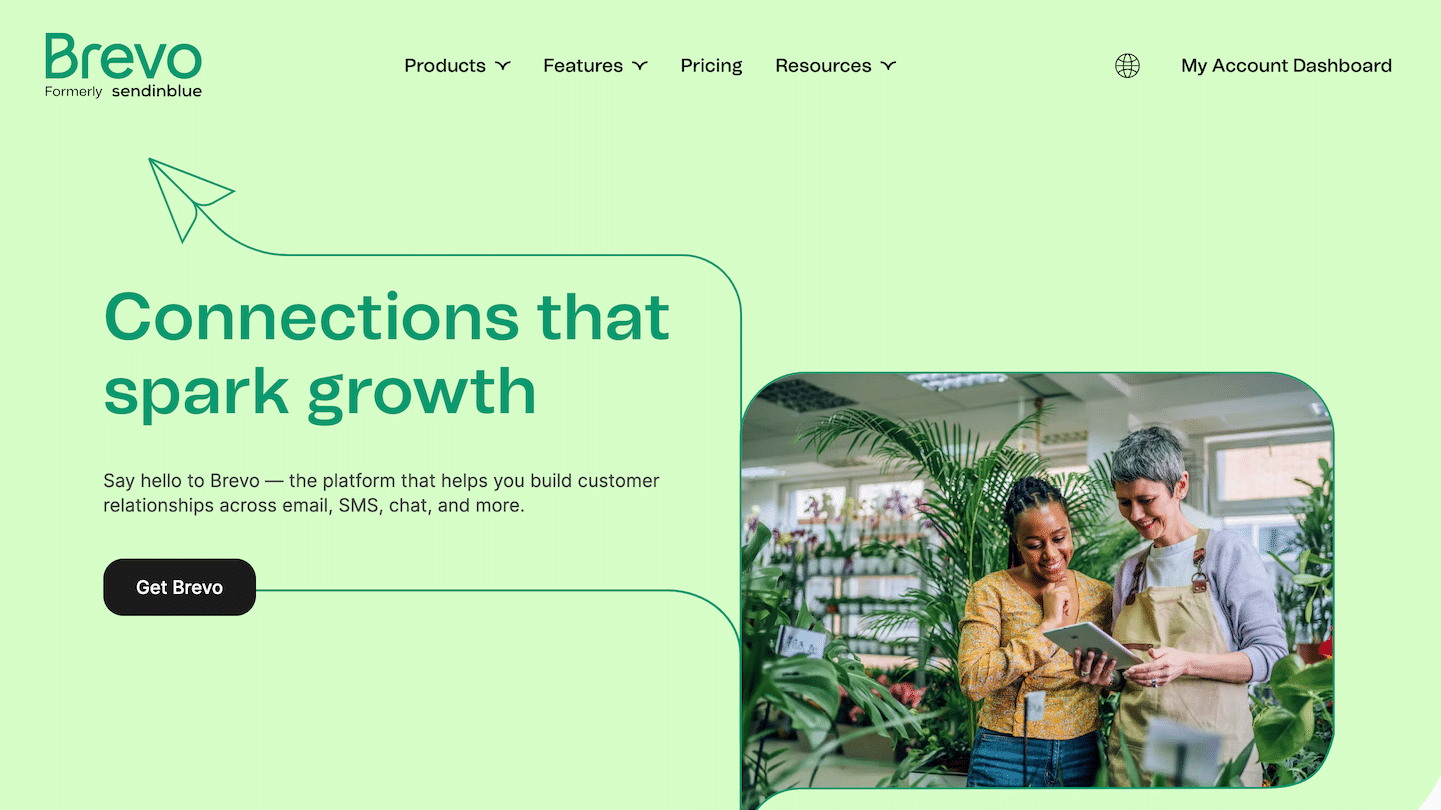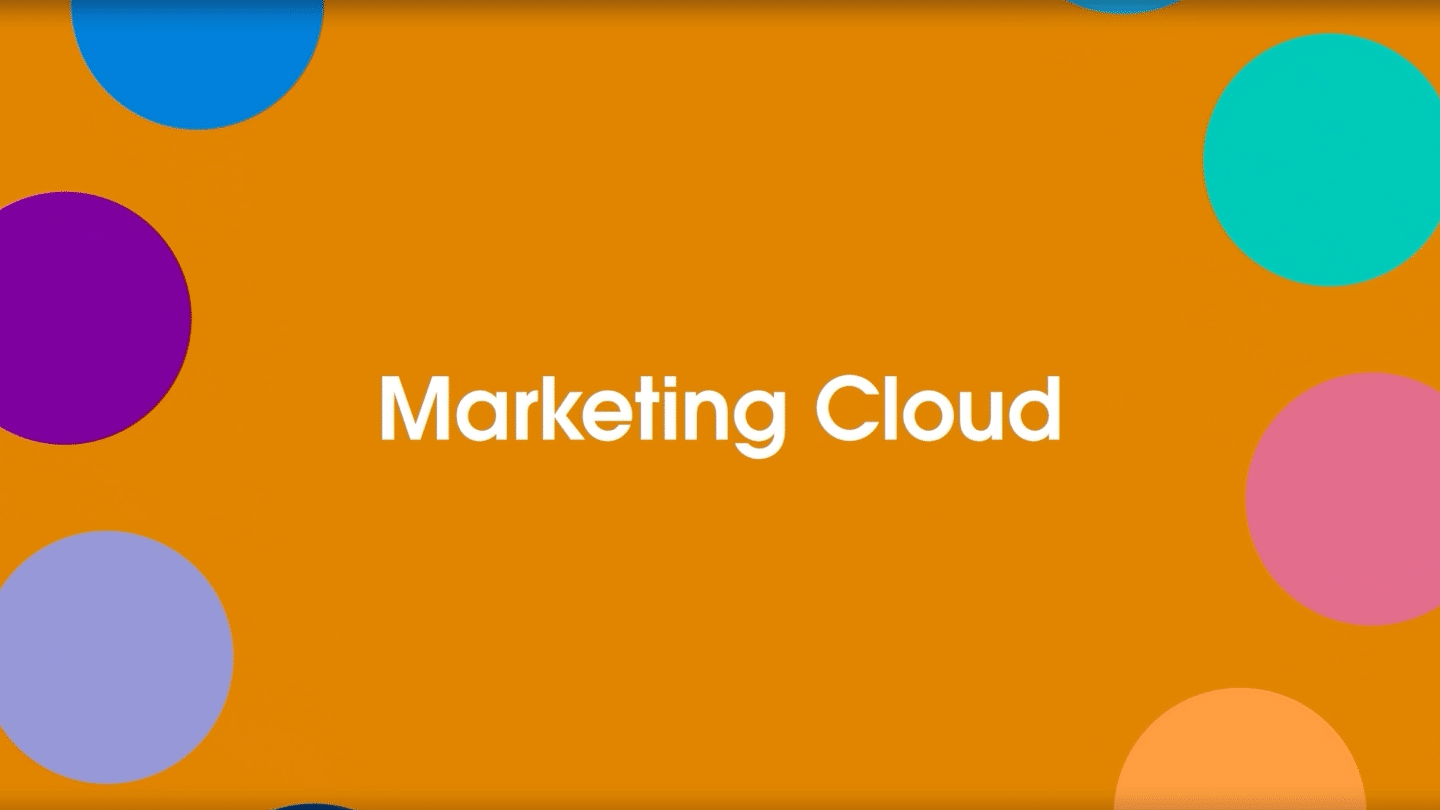Pardot, Salesforce’s B2B marketing automation platform, has been redesigned as Marketing Cloud Account Engagement.
What is Marketing Cloud Account Engagement worth? What types of company is the platform aimed at? What are the main features? What about prices? We answer all your questions.
The aim of this article is simple: to help you decide whether Marketing Cloud Account Engagement is the right solution for your B2B marketing automation strategy.
Read our review of Salesforce Marketing Cloud Account Engagement.
Sommaire
Our review of Marketing Cloud Account Engagement / Pardot: Summary table
85%
82%
95%
86%
75%
Pardot becomes Marketing Cloud Account Engagement
If you’re part of the Salesforce ecosystem, you’ve probably heard of Pardot, the B2B version of Marketing Cloud. Pardot has changed its name to Marketing Cloud Account Engagement.
Behind this name change lies Salesforce’s desire to strengthen Pardot’s integration within its ecosystem, and in particular to create more synergies with its CRM and other Marketing Cloud solutions.
Marketing Cloud Account Engagement retains all the features that have made Pardot such a success: an intuitive interface, advanced lead nurturing tools, an advanced marketing automation scenario editor, powerful reporting…
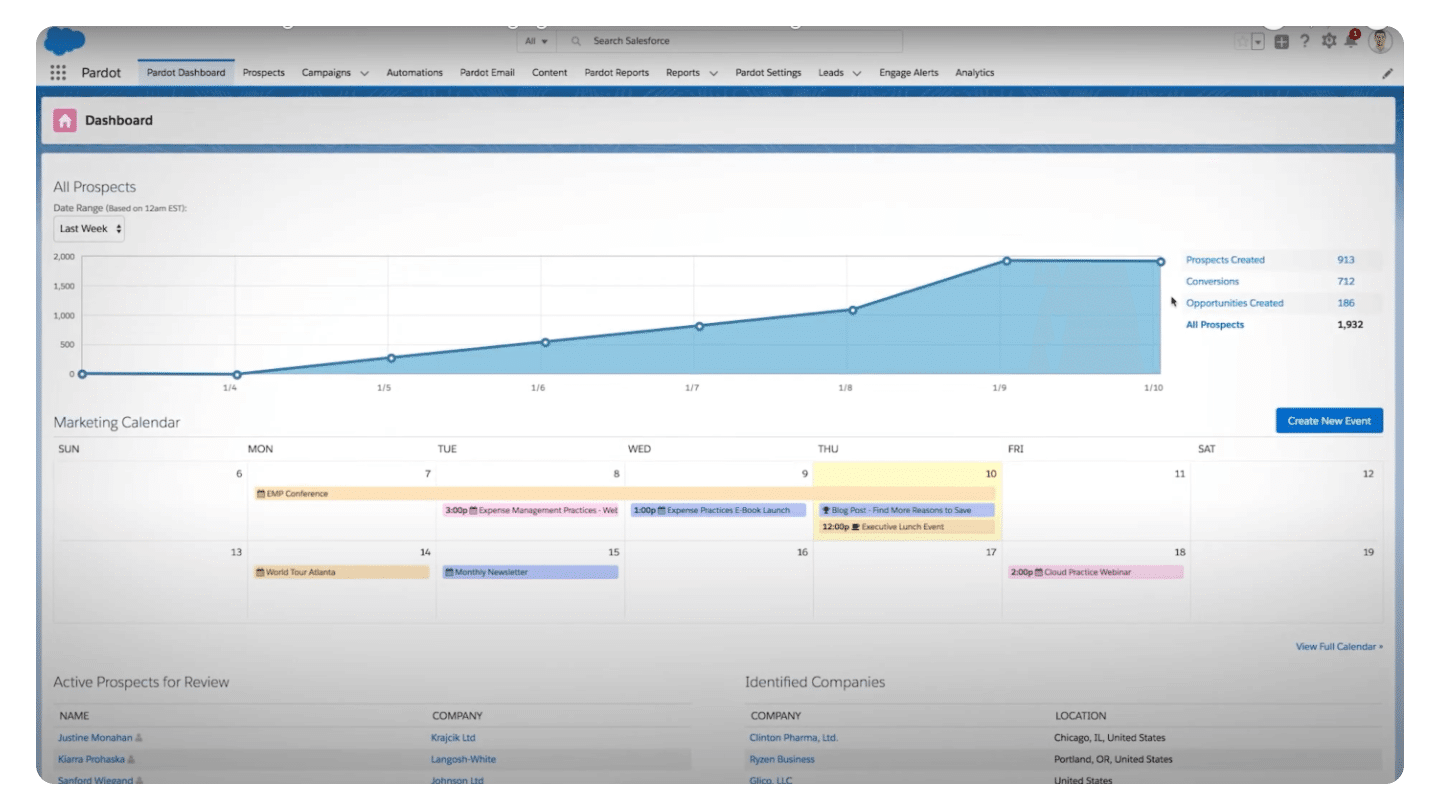
Discover Salesforce Marketing Cloud
Salesforce offers a demo video that gives a first impression of the Marketing Cloud interface and the platform’s capabilities.
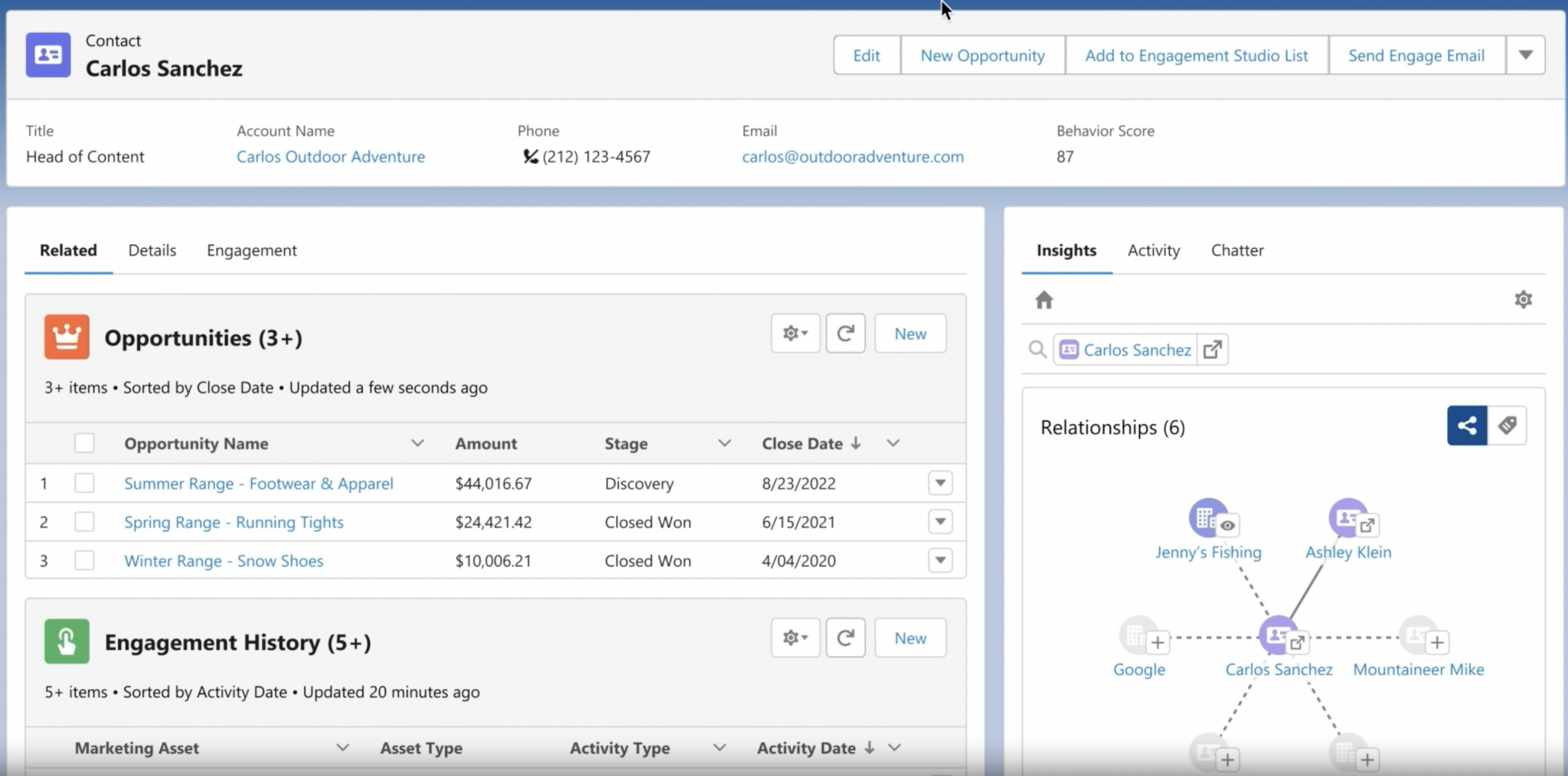
Marketing Cloud Account Engagement functional scope
Email Marketing and Landing Pages
Let’s start with the basics: email and landing pages, the foundation of B2B marketing. In other words, Marketing Cloud Account Engagement is pretty well equipped in this respect.
When it comes to email campaigns, we’ve got everything you’d expect: a fairly intuitive responsive template editor, advanced customization options (even if we’re still a notch below Hubspot in this respect), and test and preview tools to make sure your messages display well on all devices and email clients.
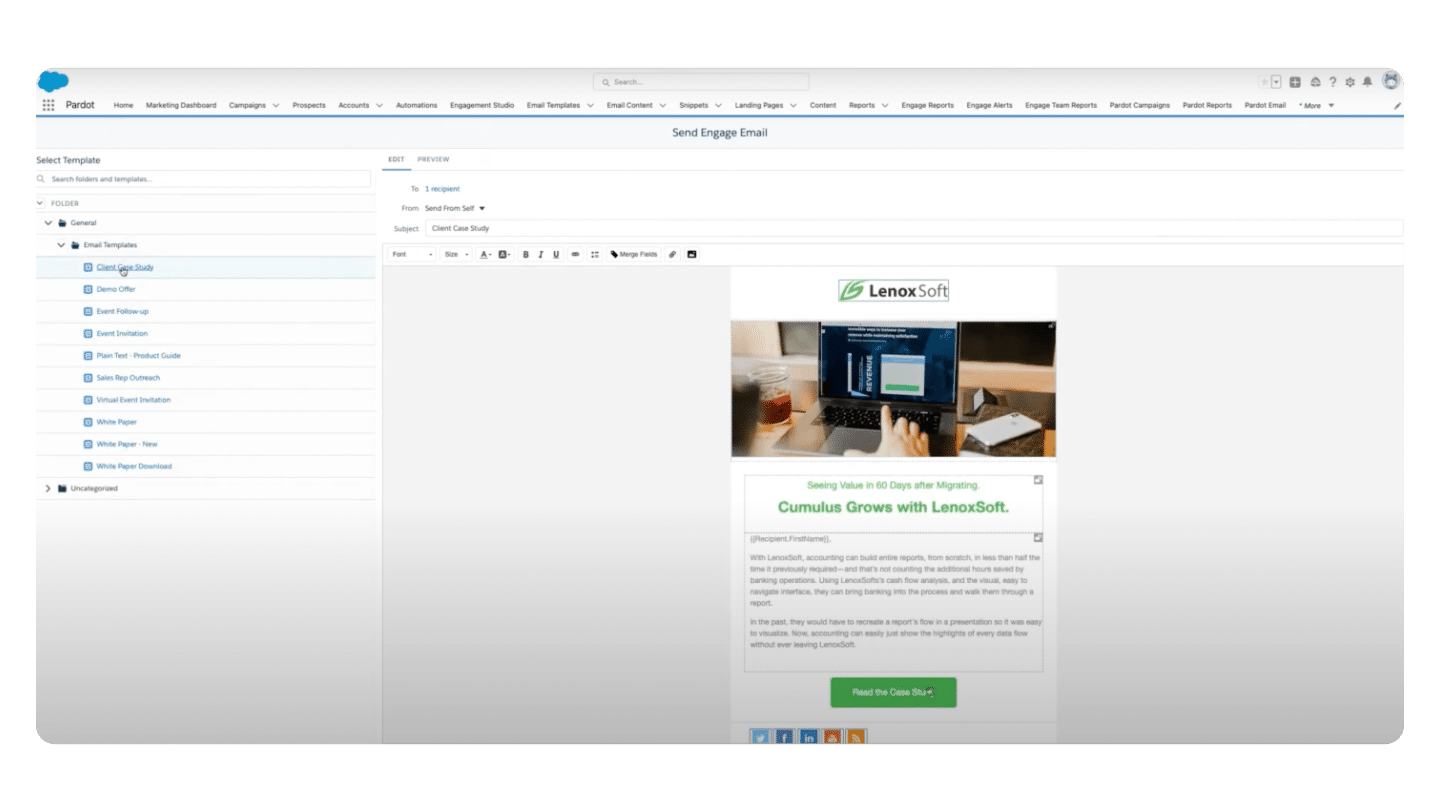
The same applies to landing pages. The builder is easy to get to grips with and offers a good level of customization, both in terms of design and content. Advanced functions such as pre-filled forms and A/B testing to optimize conversion rates are also appreciated. On the downside, however, advanced design possibilities are a little limited, and you can quickly become frustrated if you have somewhat specific needs.
Lead Management and Lead Scoring
This is where we get to the heart of the Marketing Cloud Account Engagement reactor. Lead management, and above all lead scoring, is the tool’s signature feature. And Salesforce has pulled out all the stops in this area.
Creating lead scores is child’s play, with a system of points to be awarded according to the prospect’s actions and profile. Of course, everything is fully customizable according to your business criteria. The “Engagement at the bottom of the funnel” scoring model is a must for identifying the hottest prospects at a glance.
When it comes to lead management, we’re talking classic but solid. Segmentation, nurturing, distribution to sales reps… It’s all there, and seamless integration with Sales Cloud increases the possibilities tenfold. This enables sales reps to track their prospects’ progress through the funnel in real time, and adjust their approach accordingly.
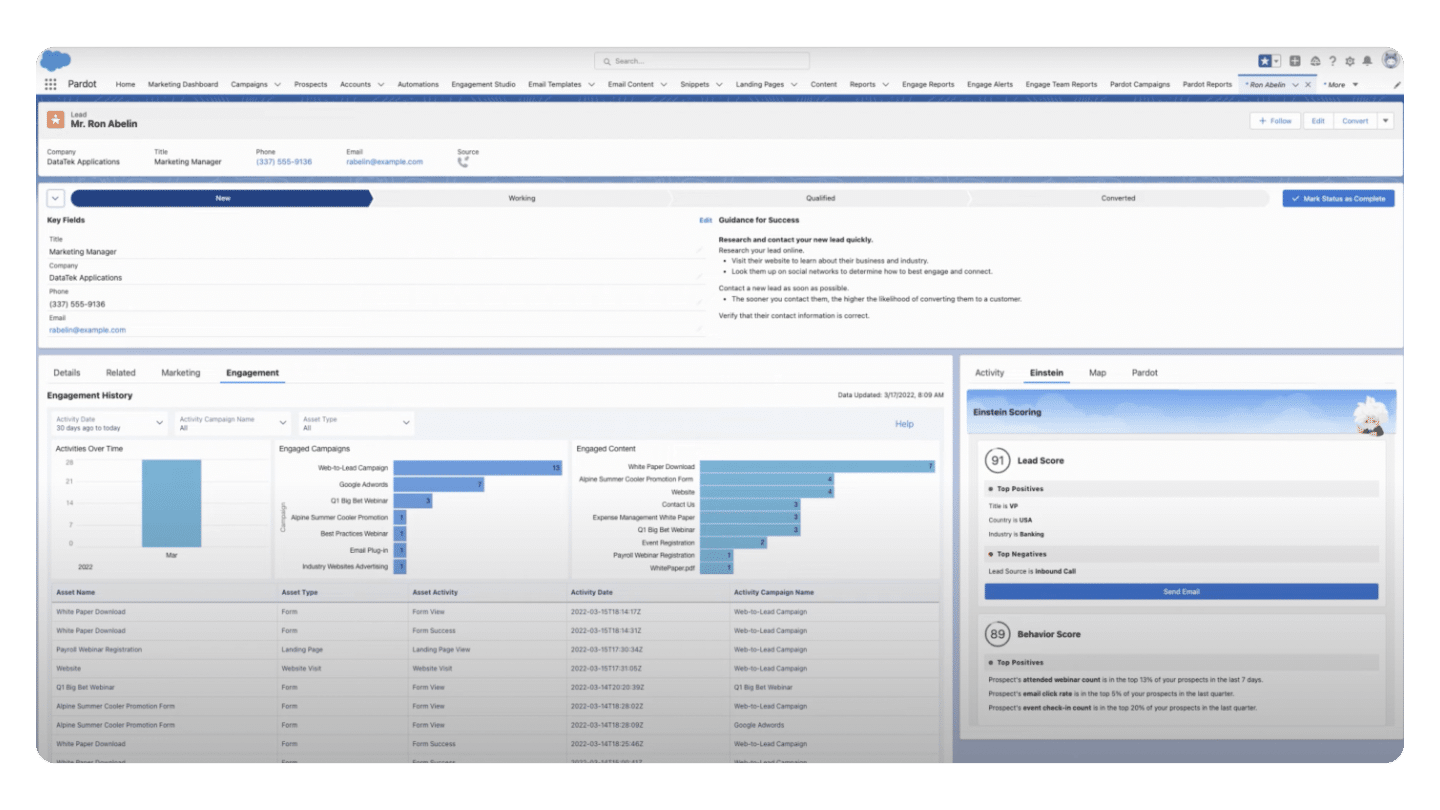
In short, when it comes to lead management and scoring, Marketing Cloud Account Engagement is clearly one of the market leaders.
Discover Salesforce Marketing Cloud
Salesforce offers a demo video that gives a first impression of the Marketing Cloud interface and the platform’s capabilities.

Campaign automation and workflows
Salesforce Marketing Cloud Account Engagement popose a powerful editor of marketing automation scenarios / workflows.
It includes all the great classics: triggers based on prospect actions, conditions, waiting times, connections… In short, everything you need to build ultra-personalized itineraries without getting in over your head.
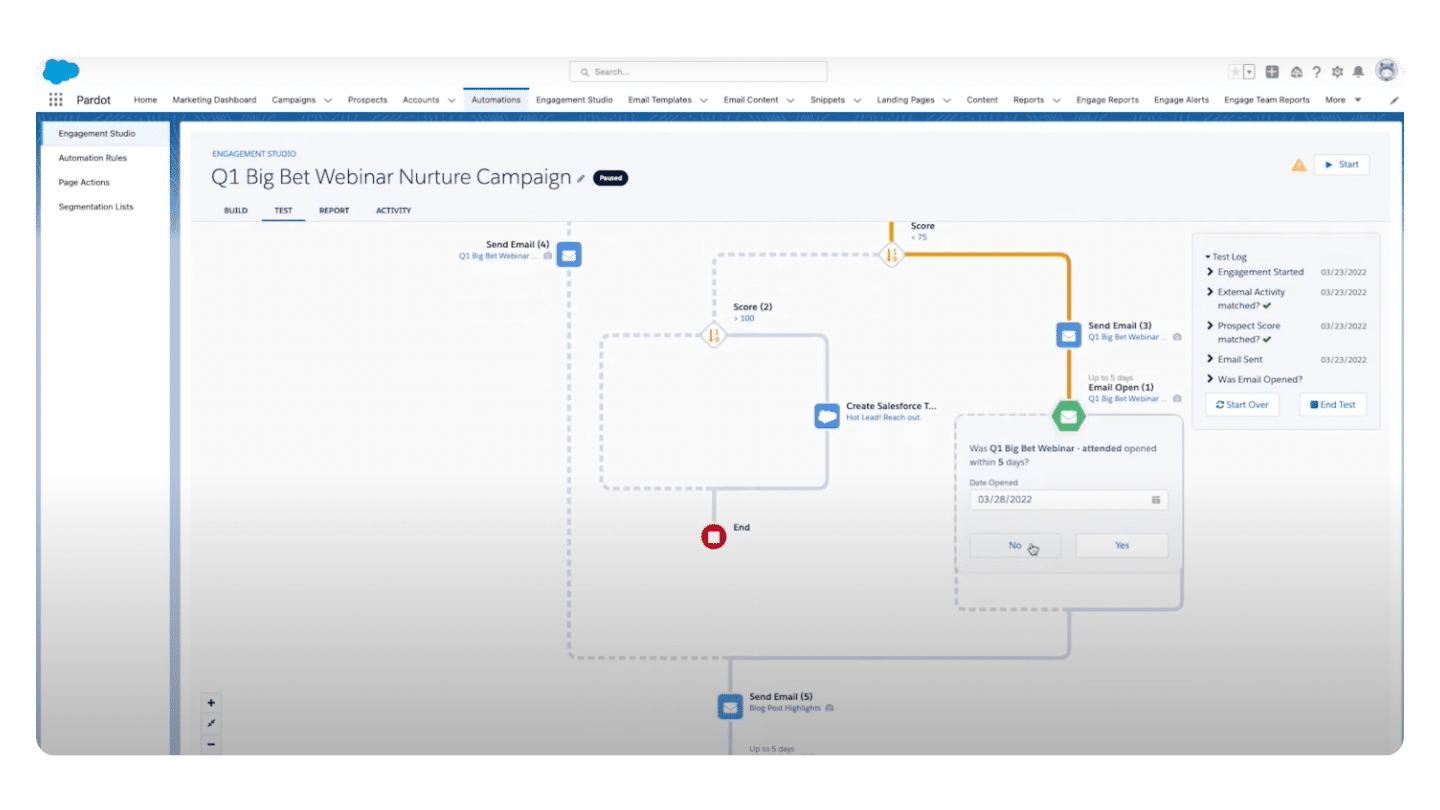
The big plus is the fully visual drag-and-drop interface. Gone are the hours spent trying to figure out how to build a workflow, here it’s all child’s play. Of course, it can become a bit laborious on very complex programs, but overall it’s a joy to use.
Segmentation and personalization
Segmentation and personalization are the lifeblood of B2B marketing automation. And in this respect, Marketing Cloud Account Engagement does rather well.
All prospect and customer data is centralized in a single location, making it possible to build hyper-precise segments by cross-referencing a large number of criteria: demographic and behavioral data, purchase history, etc. The possibilities are virtually endless.
When it comes to personalization, you’ll find all the classic variables for injecting dynamic content into your emails and landing pages. Here again, our advanced integration with Sales Cloud is a real plus, as we can easily retrieve sales data to take personalization even further.
Product recommendations, meanwhile, remain fairly basic. If the product catalog is a central element of your marketing automation strategy, you’ll probably be a little frustrated. But for the majority of B2B use cases, Marketing Cloud Account Engagement more than does the job when it comes to personalization.
Social Media Marketing
Let’s end this overview with social media marketing, the poor relation of Marketing Cloud Account Engagement.
Of course, the basics are still there: the ability to publish on the main social networks, to include share buttons in emails and landing pages, and to track the social engagement generated. But these are still pretty basic functions, a far cry from a dedicated tool like Hootsuite or Sprout Social.
Not enough to effectively manage a large-scale social presence, nor to really exploit the potential of social networks in automation campaigns. For occasional use, it can tide you over, but marketers with a real social media strategy will undoubtedly have to turn to a complementary tool.
Salesdorado’s opinion
This is the Achilles’ heel of Marketing Cloud Account Engagement in general: on specific channels such as social, mobile and ads, the capabilities are limited. This is the downside of a tool that’s very much focused on email and the web.
Reporting on Marketing Cloud Account Engagement
Reporting is clearly one of the strong points of Marketing Cloud Account Engagement. And with good reason: Salesforce has pulled out all the stops to offer its users an ultra-complete tracking and analysis tool.
The heart of the system is B2B Marketing Analytics. This suite of tools tracks all marketing activity, from campaign engagement to pipeline and revenue generation. All with impressive granularity: you can track performance at the level of each campaign, each content, each segment, so you can really understand what’s working and what’s not.
The big plus is the business orientation of these reports. No more marketing metrics in a corner, here everything is designed to demonstrate the concrete impact of marketing actions on sales.
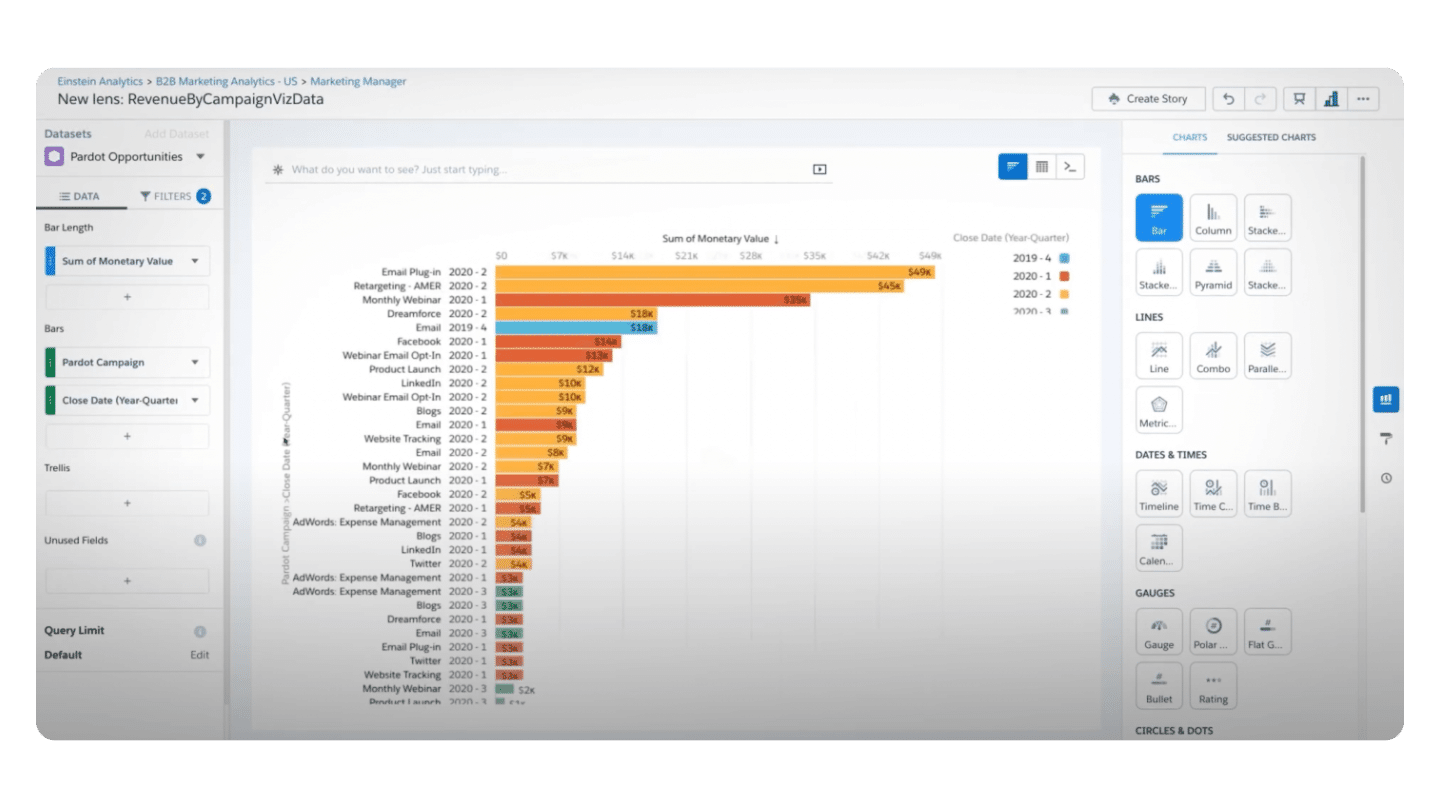
We also appreciate the pre-packaged dashboards, which provide an at-a-glance overview of performance. The Email Performance Dashboard and the Lead Lifecycle Dashboard are real must-haves for keeping a constant eye on key KPIs.
For the uninitiated, it’s a shame that it’s so complicated to get to grips with. Some reports require a little configuration and can be a little obscure for those without an analytical background. But with a bit of practice and a bit of teaching, the whole thing remains very accessible and, above all, hyper-powerful.
Salesdorado’s opinion
If you’re looking for a tool to truly measure and demonstrate the value of your marketing automation actions, you’ll be like a fish in water with Marketing Cloud Account Engagement. The tool is clearly one of the benchmarks in its field.
Marketing Cloud Account Engagement integrations
A marketing automation tool is only as good as its ability to integrate seamlessly with the rest of the information system. And that’s precisely where Marketing Cloud Account Engagement comes into its own…at least if you’re part of the Salesforce ecosystem.
Let’s start with the obvious: integration with Sales Cloud, Salesforce’s CRM software, is simply perfect. Quite simply, it sometimes feels like the two tools are one and the same. Synchronizing data, custom fields and actions is seamless and immediate. Everything is done to align marketing and sales!
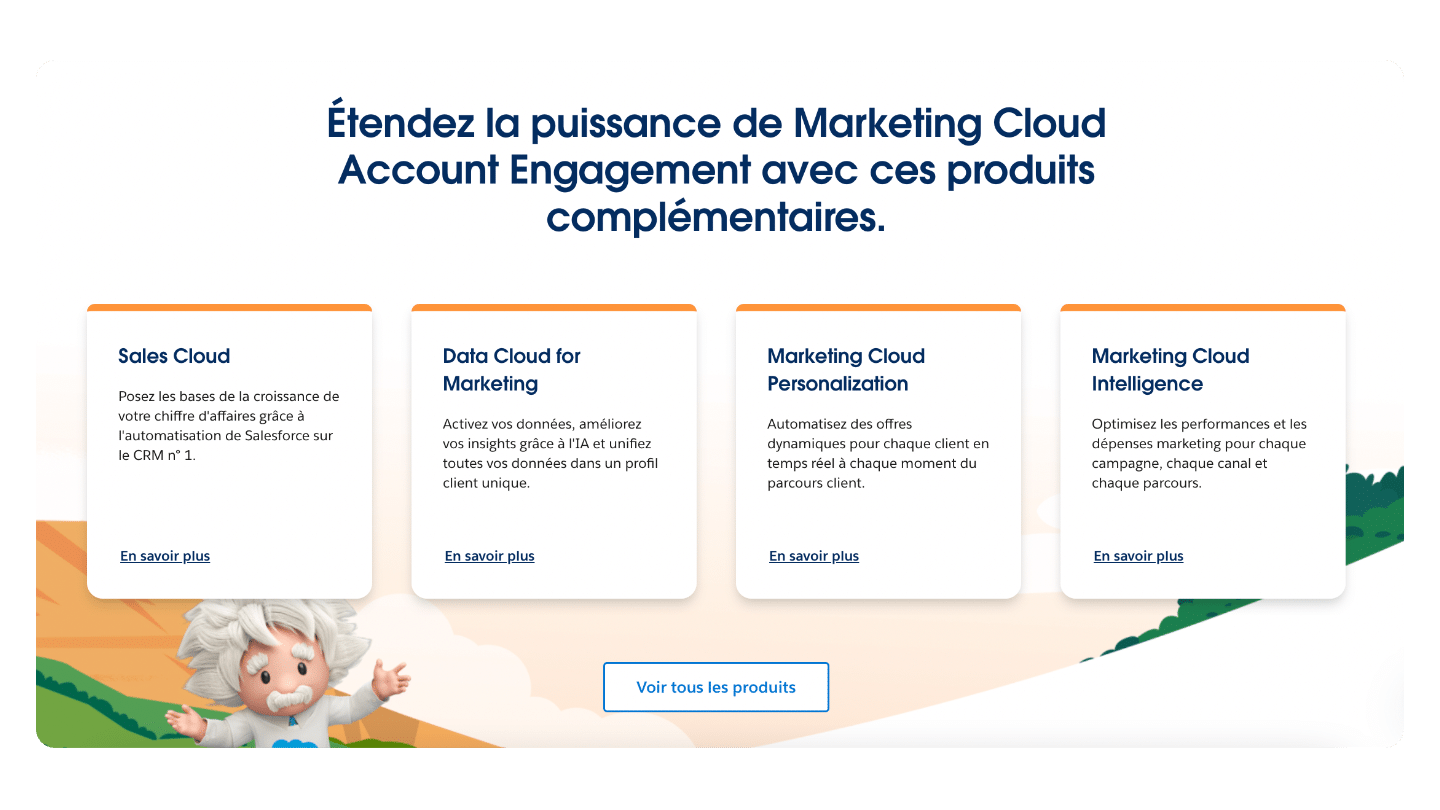
The same applies to the other building blocks in the Salesforce galaxy. Whether it’s Service Cloud for after-sales management, Community Cloud for customer and partner engagement, or Commerce Cloud for ecommerce, all the bridges are already in place and working perfectly. The result is an ultra-fluid, end-to-end customer journey.
The highlight of this advanced integration is Salesforce Einstein, Salesforce’s in-house artificial intelligence tool. With it, you can take automation and personalization even further, with predictive models and recommendations tailored to each profile.
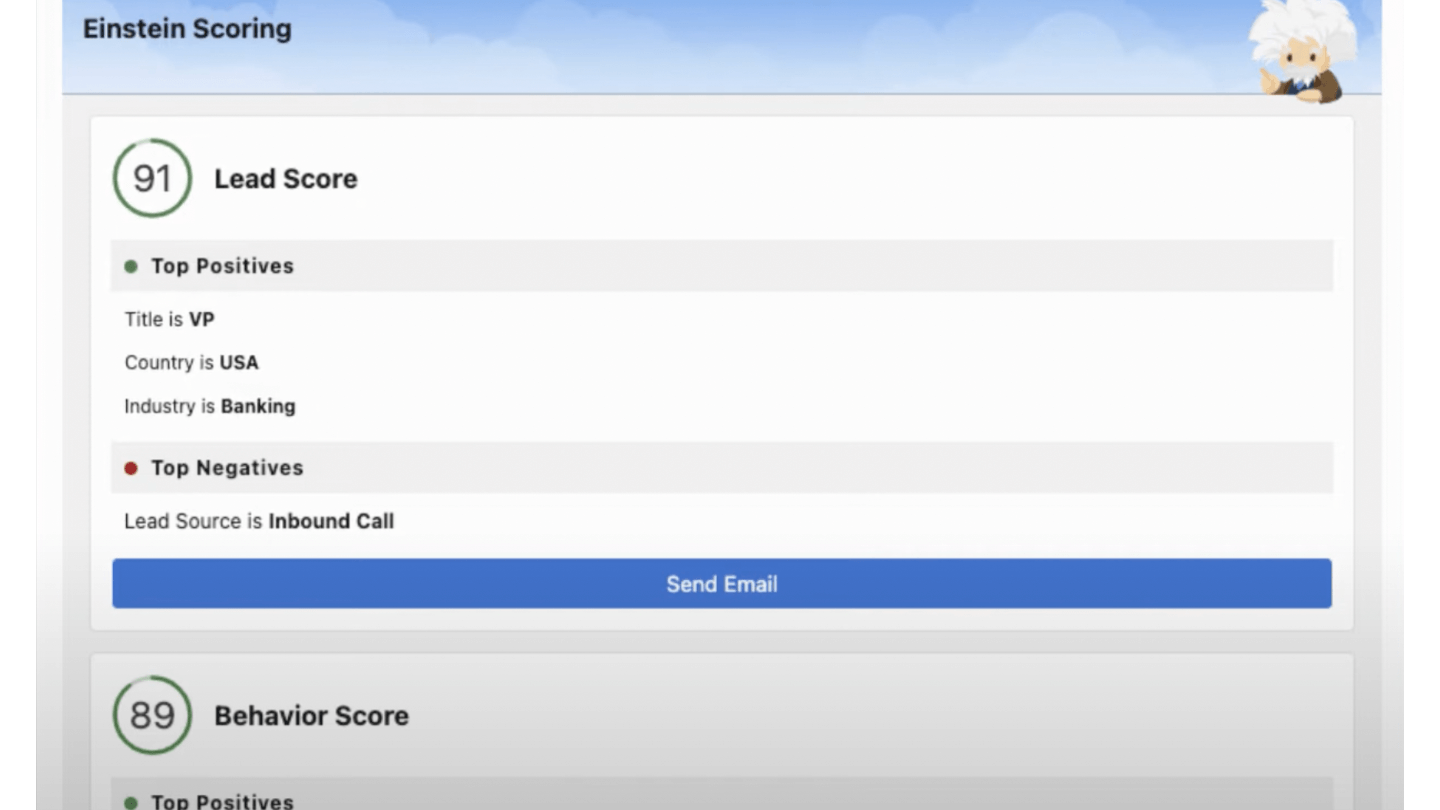
But this strength is also a weakness. Outside the Salesforce world, things get a little more complicated. Of course, connectors are available for most of the major tools on the market (Zapier, Workato…), via theApp Exchange, but this is far from the level of integration offered natively. This will often require some specific development.
This is particularly true of social networks. While tools like HubSpot offer native integrations with the main platforms, here we’re reduced to tinkering with connections via third-party tools. Frustrating if social is at the heart of your marketing strategy.
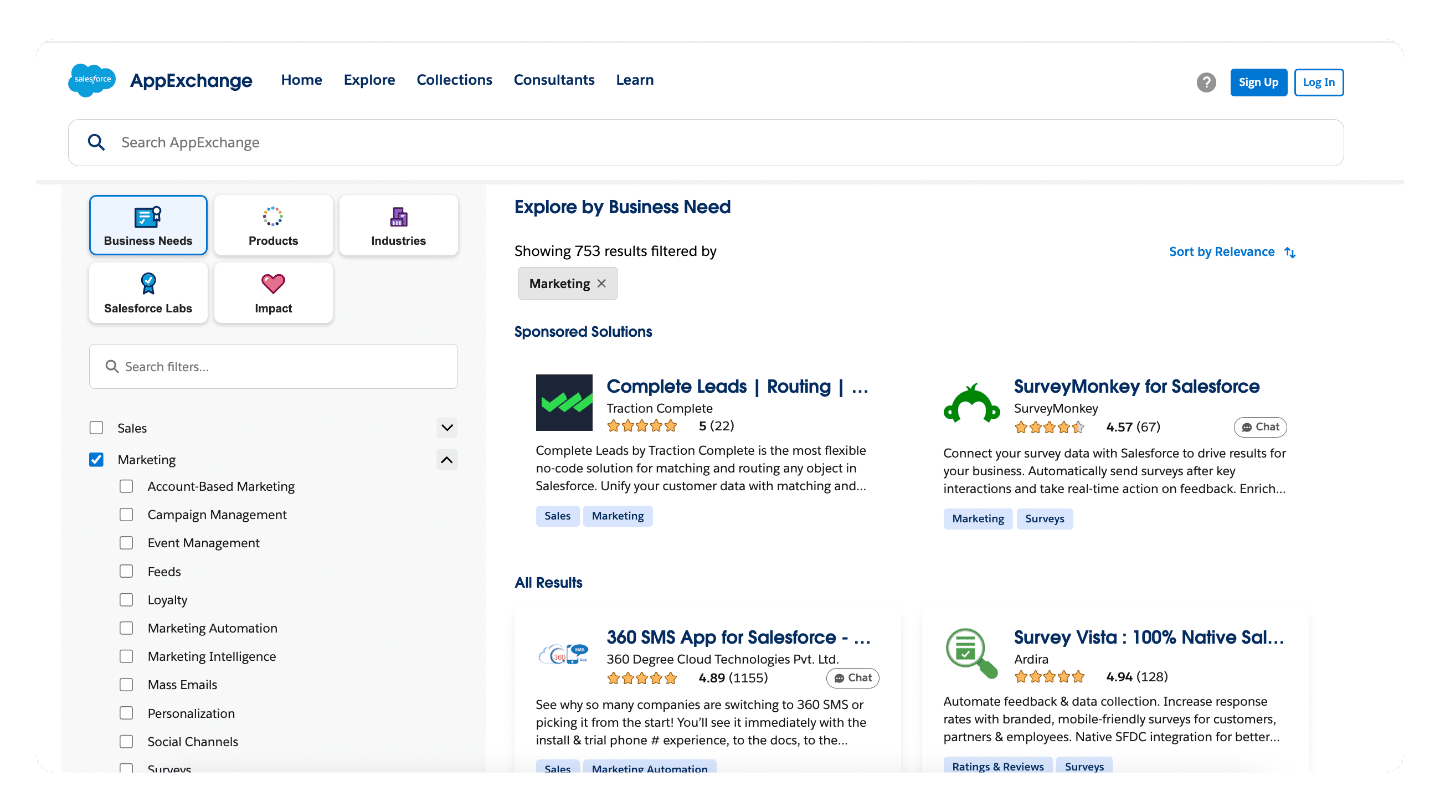
In short, if your technology stack is 100% Salesforce, you’ll be in heaven with Marketing Cloud Account Engagement. But if you have a lot of third-party tools, be prepared for a few compromises and manual labor. It’s up to you to decide which way the scales fall!
Discover Salesforce Marketing Cloud
Salesforce offers a demo video that gives a first impression of the Marketing Cloud interface and the platform’s capabilities.

Customer reviews of Marketing Cloud Account Engagement
To get a concrete idea of how Marketing Cloud Account Engagement is perceived by its users, there’s nothing like a quick look at customer reviews. And overall, the results are quite positive, with an average rating of 4.1/5 on Capterra (based on 648 reviews) and 4.2/5 on G2 (for 2309 reviews).
But behind these encouraging ratings, what are users really saying? What are the strengths and weaknesses that come up most often? A brief summary of the most frequent returns:
- Unsurprisingly, the tool’s greatest asset is its extensive integration with Salesforce. Users appreciate the fact that they can effortlessly synchronize their marketing and sales data, for optimal alignment between teams. As one user points out, “if your company uses Salesforce, it’s the perfect marketing tool to use in B2B”.
- Another strong point is the power of reporting, which enables very detailed monitoring of campaign performance. The ability to follow a prospect throughout his or her buying journey is particularly appreciated.
- On the weak side, it’s the price-performance ratio that is causing a few teeth to grind, especially among smaller structures. “The price is too high for what you get,” sums up one user bluntly. It’s true that Marketing Cloud Account Engagement’s price positioning remains high and may put some people off, especially when compared to more affordable alternatives such as HubSpot or Mailchimp.
- Another recurring complaint is the tool’s lack of flexibility on certain specific points. For example, many users complain about the limited options for advanced personalization of landing pages and emails. “For those who want to build a real customer strategy, the ability to adapt should be a little deeper,” notes one customer.
Despite these reservations, the overall picture remains very positive. Most users are satisfied, even enthusiastic, underlining the gains in productivity and efficiency that the tool has brought them. A sentiment summed up well by this customer: “It’s a substantial investment, but clearly worth it if you’re working in a Salesforce environment”.
Of course, Marketing Cloud Account Engagement isn’t perfect, and won’t suit all budgets and needs. But for those looking for a powerful marketing automation platform that’s perfectly integrated with Salesforce, it’s clearly a safe bet that’s proved its worth with many demanding customers!
Pardot / Marketing Cloud Account Engagement rates
Let’s face it, Marketing Cloud Account Engagement isn’t cheap. Salesforce is clearly positioning its offering at the top end of the market, and this is reflected in its prices. But let’s take a closer look.
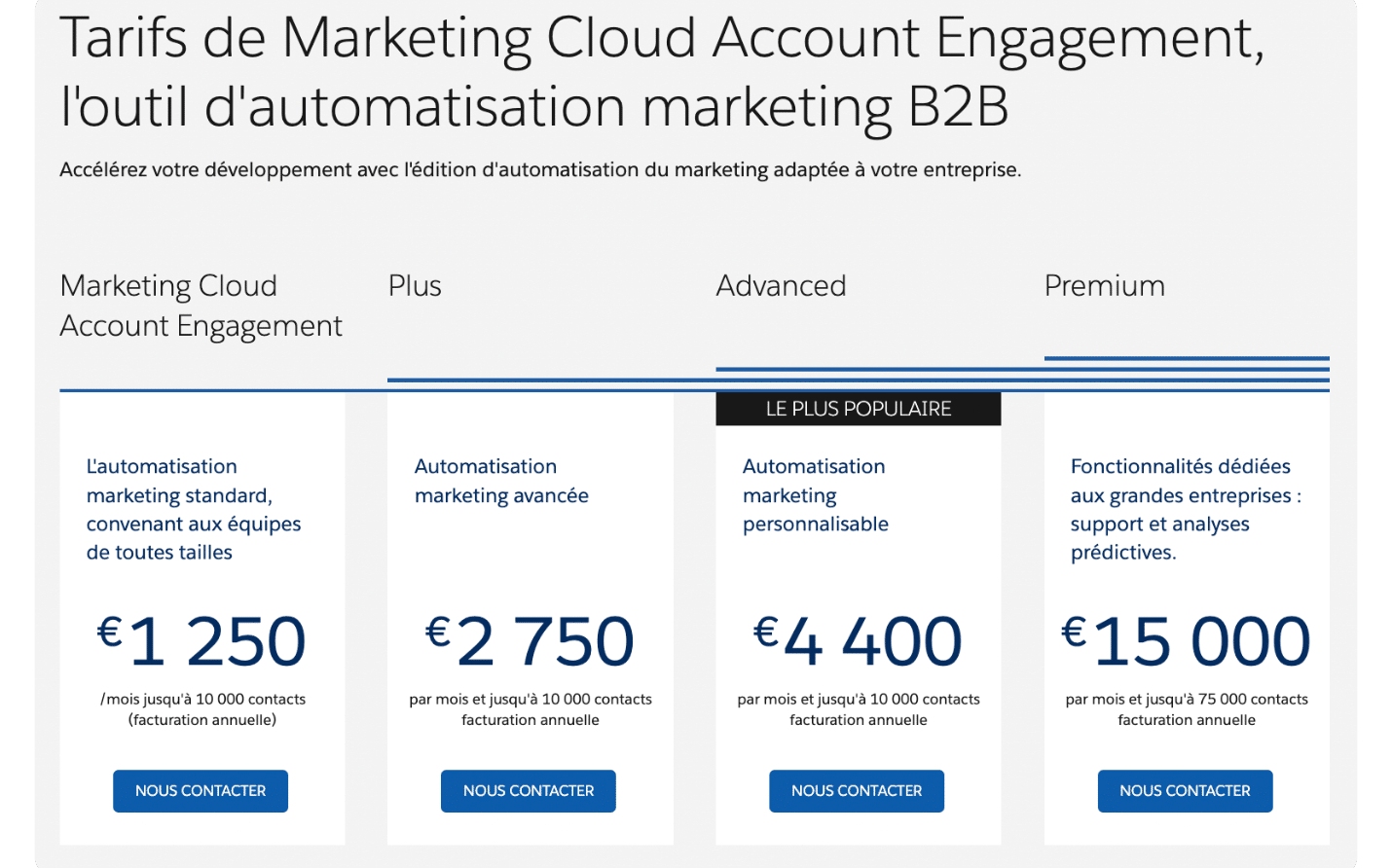
Salesforce offers 4 packages for Marketing Cloud Account Engagement:
- Growth: from $1,250 per month for up to 10,000 contacts billed annually. This formula includes the fundamentals of lead nurturing, evaluation and reporting. But beware: you’ll be limited to 50 automation rules, landing pages and forms. And no Salesforce Einstein integration at this level.
- Plus: from $2,750 per month, again for 10,000 contacts. Here, we step up a gear with cross-channel paths, advanced reporting and Google Adwords integration. Automation limits increase to 100.
- Advanced: from $4,400 per month for 10,000 contacts. This package adds advanced features such as a dedicated IP, Salesforce Einstein integration and up to 2 separate business units.
- Premium: from $15,000 per month for up to 75,000 contacts. The ultimate, with all the features of the previous formulas, premium support and the ability to manage up to 5 business units.
Please note that Salesforce prices are quoted exclusive of tax and are invoiced annually. And of course, the larger your contact base, the higher the bill. For 75,000 contacts, for example, you’ll pay $3,000 more per month for the Advanced formula.
So yes, it may seem prohibitive, especially for small structures. But these rates should be seen as an investment. For a company with a complex sales cycle and high stakes in terms of marketing automation, ROI can be quickly achieved.
What’s more, Salesforce has recently made efforts to make its prices more flexible. Gone are the 12-month contracts, and now you can commit to a monthly contract, or even buy additional contacts by the unit, depending on your specific needs.
Salesdorado’s opinion
Marketing Cloud Account Engagement remains a premium tool with a high entry ticket. That’s the price you pay for a high-end platform, perfectly integrated into the Salesforce ecosystem. It’s up to you to decide whether it’s worth the risk, given your stakes and resources… If you’d like to explore other solutions, discover 10 credible alternatives to Salesforce.
Conclusion
In conclusion, Marketing Cloud Account Engagement is a powerful, comprehensive marketing automation solution, particularly suited to B2B companies operating in the Salesforce ecosystem. Its strengths: native CRM integration, advanced lead nurturing and reporting functionalities, and top-quality support. Its limitations: a certain lack of flexibility on the most advanced aspects and a high price positioning that can hold back small structures. If you’re looking for a high-end tool that integrates seamlessly with Salesforce, Marketing Cloud Account Engagement is for you. Otherwise, there are some very good, more affordable alternatives on the market that are well worth a look.
Discover Salesforce Marketing Cloud
Salesforce offers a demo video that gives a first impression of the Marketing Cloud interface and the platform’s capabilities.


